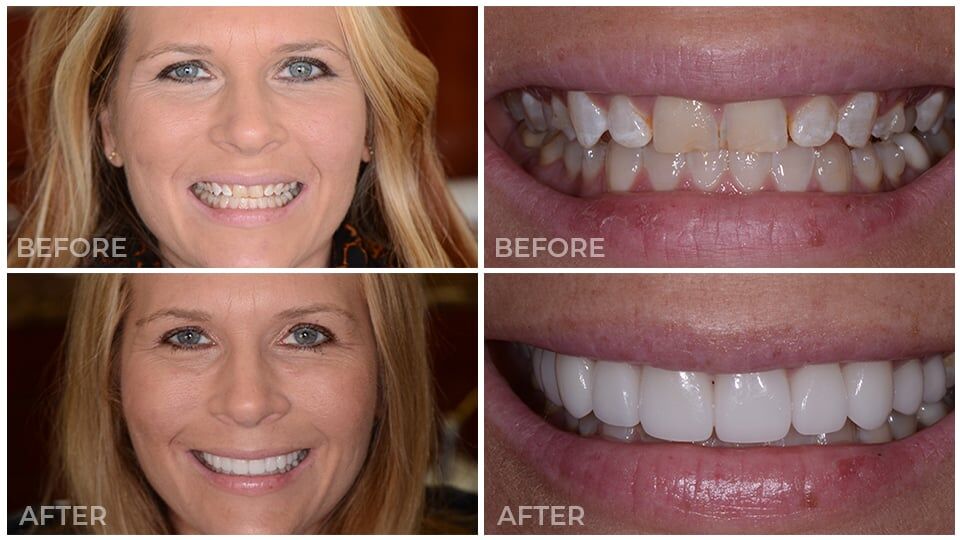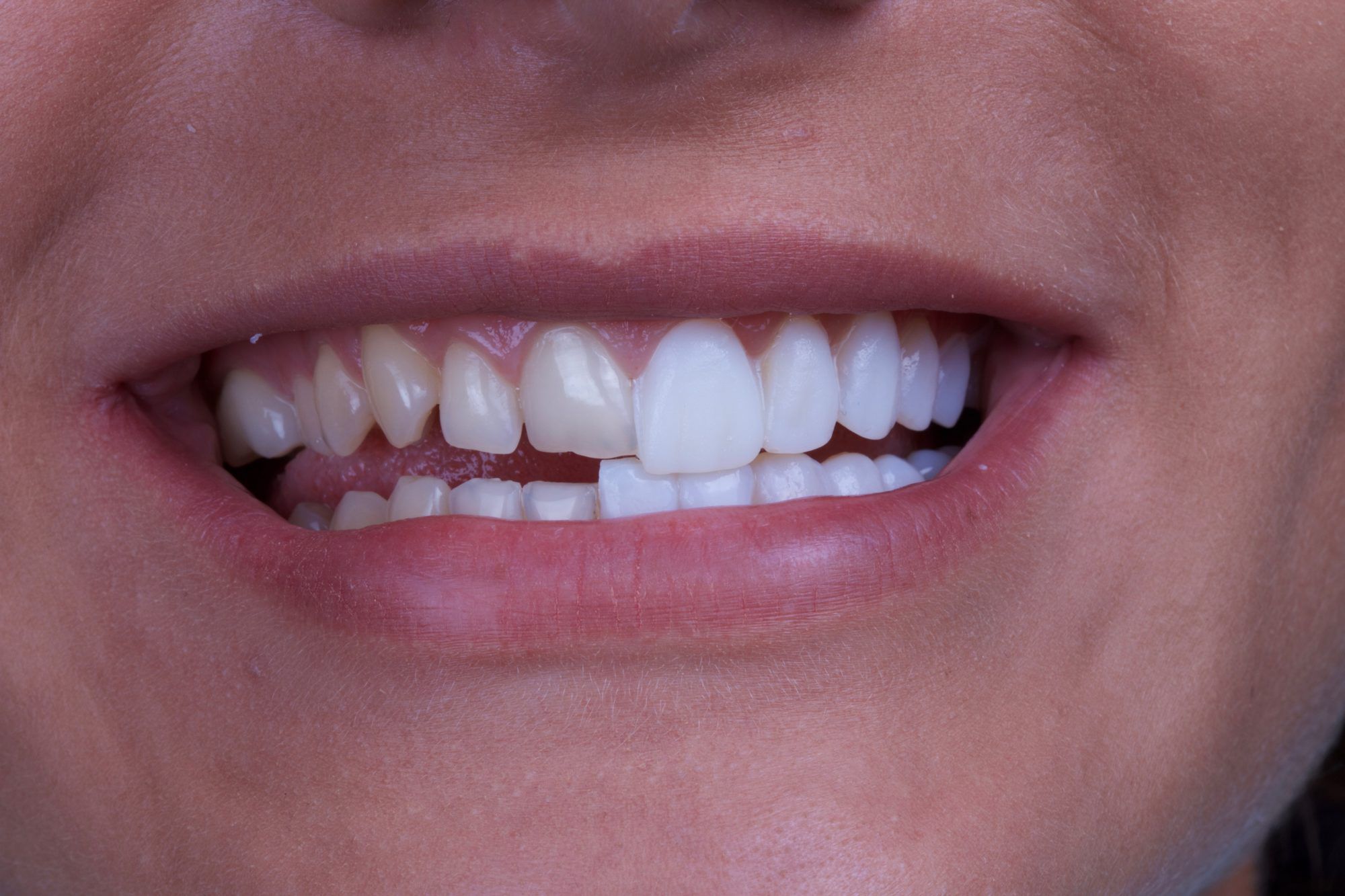The Complete Summary of Veneers: Kinds, Utilizes, and Their Effect on Your Smile
Veneers offer as a prominent service for people seeking to boost their oral visual appeals. These custom-crafted coverings can efficiently mask imperfections such as discoloration and voids. With 2 key kinds readily available, porcelain and composite resin, each deals distinct advantages and constraints. The effect of veneers expands past mere look, affecting self-esteem and social communications. Recognizing their advantages and kinds is important. What might this suggest for one's total quality of life?
Comprehending Veneers: What They Are and Just how They Work
Veneers are thin shells, usually made from porcelain or composite material, that are custom-crafted to fit over the front surface of teeth. They serve both useful and visual objectives, giving a solution for various oral blemishes such as staining, voids, and small imbalances. By sticking to the tooth enamel, veneers develop an all-natural look while improving the form and shade of the teeth.
The procedure usually entails a first consultation, where a dental expert analyzes the person's needs and talks about preferred results - Porcelain Veneers. Following this, a minimal quantity of enamel might be eliminated to accommodate the veneer. Impacts of the teeth are after that required to assure an exact fit. As soon as fabricated, the veneers are bound firmly to the teeth utilizing an unique dental adhesive. This treatment not only boosts the smile's look yet also aids protect the underlying teeth from additional damage, making veneers a prominent choice for several seeking a smile remodeling
Kinds of Veneers: Porcelain vs. Composite Resin
The difference between porcelain and composite resin veneers hinges on their material composition and attributes. Each kind provides varying levels of expense, resilience, and long life, influencing patients' options based upon their private needs. Comprehending these differences is necessary for making a notified choice concerning oral enhancements.
Product Distinctions Explained
While both porcelain and composite resin veneers offer the same cosmetic function, they vary significantly in product residential or commercial properties, toughness, and aesthetic end results. Porcelain veneers are crafted from a ceramic product that mimics the natural transparency of teeth, giving a realistic look. Their smooth surface area is immune to discoloration, making them an attractive choice for those looking for a durable aesthetic. On the other hand, composite resin veneers are made from a tooth-colored plastic material, using convenience and convenience of application. However, they may not attain the same degree of brightness or translucency as porcelain. Additionally, composite veneers can be a lot more conveniently shaped and fixed, making them a much more versatile option in specific dental scenarios. Each type offers unique advantages customized to individual choices.
Durability and Sturdiness
When contrasting porcelain and composite resin veneers, durability and toughness are considerable aspects. Porcelain veneers are recognized for their strength, frequently enduring 10 to 15 years with appropriate care. Their resilience versus staining and cracking makes them a popular choice for people looking for long-lasting results. In comparison, composite material veneers usually have a shorter lifespan, balancing 5 to 7 years. While they can be repaired a lot more conveniently if harmed, they are a lot more susceptible to wear and staining in time. The selection between these materials often depends upon the person's way of living, aesthetic objectives, and maintenance preferences. Inevitably, understanding the differences in longevity and durability can direct people in selecting the veneer kind that best matches their needs.
Expense Contrast Insights
When choosing between porcelain and composite resin veneers, price is an essential consideration. Porcelain veneers usually vary from $800 to $2,500 per tooth, reflecting their durability, aesthetic charm, and resistance to discoloration. These veneers need a much more extensive procedure and specialized laboratory work, contributing to their higher cost. On the other hand, composite material veneers are generally more affordable, costing between $250 and $1,500 per tooth. They can be used in a single check out, which decreases labor prices. However, composite veneers may require much more constant substitutes, potentially raising lasting costs. Eventually, the option between porcelain and composite resin veneers depends on specific budgets and wanted end results, stabilizing first expenses versus durability and aesthetic outcomes.
The Benefits of Choosing Veneers for Your Smile
Picking veneers uses substantial advantages for those looking for a boosted smile. Their improved visual charm can change the appearance of teeth, while their stain-resistant homes ensure a lasting brightness - Porcelain Veneers Dentist. This combination makes veneers a popular choice for people seeking to attain a perfect smile
Boosted Aesthetic Allure
When people look for to improve their smiles, veneers usually become a popular remedy because of their transformative aesthetic benefits. These thin shells, generally made from porcelain or composite material, can effectively conceal flaws such as chips, gaps, and misalignment. By resembling the all-natural look of teeth, veneers provide a smooth, radiant smile. Their personalized nature enables a tailored approach, enabling people to select shades and shapes that ideal suit their facial attributes. Additionally, veneers can produce a consistent look, enhancing total face proportion. This aesthetic enhancement not just improves self-confidence yet can also favorably affect social communications and personal partnerships, making veneers a prominent selection for those seeking to accomplish a brighter, more attractive smile.
Discolor Resistance Conveniences
Veneers not you can look here just enhance aesthetic allure yet likewise provide considerable stain resistance, making them an appealing choice for individuals worried about preserving a bright smile. Composed of durable materials such as porcelain or composite resin, veneers are less porous than natural teeth, which helps stop the absorption of discolorations from usual wrongdoers like coffee, tea, and merlot. This intrinsic tarnish resistance allows people to enjoy their preferred drinks without bothering with staining. Porcelain Veneers. Furthermore, the smooth surface of veneers makes them much easier to clean, more boosting their longevity and keeping their immaculate appearance. Because of this, veneers provide a practical service for those looking for both elegance and functionality in their dental care
The Refine of Obtaining Veneers: What to Anticipate

The process of obtaining veneers might appear intimidating, recognizing the steps entailed can ease issues. Initially, a consultation with a dentist is required to figure out if veneers are the suitable remedy for the person's dental concerns. During this appointment, the dental expert will review wanted results and take impacts of the teeth.
Next, a second consultation is set up for tooth preparation, where a percentage of enamel is typically removed to accommodate the veneers. Temporary veneers may be put while the check these guys out customized ones are crafted in a dental lab, which typically takes a number of weeks.
As soon as all set, the dentist will certainly put the veneers, making certain appropriate fit and shade before bonding them to the teeth utilizing an unique adhesive. After last modifications, the dentist will supply advice on care. Comprehending these actions can assist patients feel a lot more comfy and notified throughout the veneer process.
Maintenance and Look After Your Veneers
Keeping veneers calls for regular care to guarantee their long life and look. Correct dental health is crucial; cleaning twice daily with a non-abrasive tooth paste and flossing routinely assist stop plaque build-up around the veneers. In addition, routine oral exams are crucial for keeping an eye on the problem of the veneers and dealing with any type of prospective concerns early.
When biting to stop damages, clients ought to avoid difficult foods and excessive force. It's likewise a good idea to limit consumption of staining compounds, such as coffee, tea, and red a glass of wine, as these can influence the veneers' color in time.

Changing Your Smile: Real-Life Effect of Veneers
A glowing smile can considerably boost click for more one's self-confidence and general appearance. For several people, veneers function as a transformative remedy, effectively resolving numerous dental issues such as staining, spaces, and misalignment. These slim shells, customized to fit over the front of the teeth, can produce a harmonious and aesthetically pleasing smile.
Real-life instances highlight the profound effect veneers can have. Clients commonly report an immediate increase in self-confidence and social communications following their procedure. The newfound self-confidence can result in even more opportunities in specialist and personal life, as people really feel even more inclined to engage and express themselves.
Additionally, the psychological advantages expand beyond plain look; lots of experience improved mental health as they welcome their smiles. Veneers not just improve physical features but likewise contribute significantly to overall quality of life, underscoring their worth in cosmetic dentistry.
Frequently Asked Inquiries
The Length Of Time Do Veneers Generally Last Before Requiring Substitute?
Veneers usually last between 10 to 15 years before needing replacement. Factors such as oral hygiene, dental routines, and the kind of product utilized can influence their durability and total durability. Regular dental exams are recommended.
Can Veneers Be Removed, and if So, Exactly how?
Yes, veneers can be removed. A dentist normally uses specific devices to very carefully separate them from the teeth, making sure minimal damages to the underlying enamel, often complied with by necessary modifications or reconstructions for perfect appearances.
Are Veneers Suitable for Everyone's Dental Condition?

Will Getting Veneers Pain or Require Anesthesia?
Getting veneers usually includes marginal pain, and many people get neighborhood anesthesia to guarantee a pain-free experience. Level of sensitivity may take place briefly later, however the majority of discover the procedure tolerable and are pleased with the results.
Just How Do Veneers Affect Tooth Sensitivity After Positioning?
Veneers can momentarily enhance tooth level of sensitivity due to the elimination of enamel and the bonding process. The majority of individuals experience a decline in sensitivity gradually as the teeth readjust to the new veneers.
Veneers are thin shells, commonly made from porcelain or composite material, that are custom-crafted to fit over the front surface of teeth. Porcelain veneers are crafted from a ceramic material that mimics the all-natural transparency of teeth, providing a lifelike appearance. Porcelain veneers typically vary from $800 to $2,500 per tooth, mirroring their sturdiness, aesthetic allure, and resistance to discoloration. In contrast, composite resin veneers are generally more budget friendly, setting you back in between $250 and $1,500 per tooth. Made up of sturdy materials such as porcelain or composite resin, veneers are less porous than natural teeth, which helps prevent the absorption of stains from common wrongdoers like coffee, tea, and red a glass of wine.